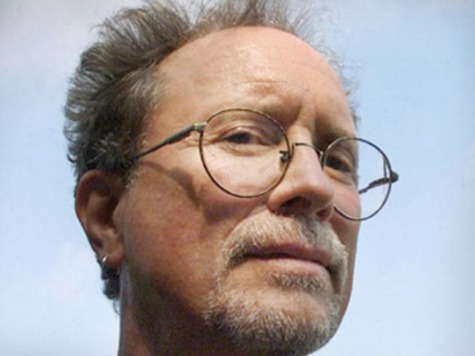While proponents of the Common Core claim that the new standards are focused on “college and career readiness,” more evidence is surfacing that a central purpose of the initiative is social justice and income redistribution indoctrination.
Social justice indoctrination in Common Core is not just limited to language arts.
Radical Math is a group founded by Jonathan Osler who teaches math and community organizing at a Coalition of Essential Schools (CES) high school in Brooklyn, New York. Its website states Radical Math is “a resource for educators interested in integrating issues of social and economic justice into their math classes and curriculum.”
The CES reform movement, whose purpose is to indoctrinate students with a Marxist-Communist political and social ideology, had been supported and expanded through the efforts of President Obama and his fellow community organizer Bill Ayers when both worked on the board of the Chicago Annenberg Challenge in the 1990s.
As Danette Clark wrote at EAG News, Common Core “architect” David Coleman’s Grow Network also worked with Chicago Public Schools, Obama, and Ayers during that time. In addition, Linda Darling-Hammond, who served as an advisor for the Bay Area CES, served as Obama’s 2008 presidential campaign education advisor and has more recently been involved in the development of the Common Core assessments.
Radical Math will sponsor the sixth annual conference of an organization called Creating Balance in an Unjust World, from January 17th-19th at University High School in Los Angeles. The keynote speaker at the conference is announced as Dr. Jane Margolis, a senior researcher at UCLA’s Graduate School of Education and Information Studies, whose work has focused on “equity in education and how fields become segregated.”
The organization’s website states the theme of its conference this year will be “equity in technology access as it relates to mathematics education.”
As Clark notes, one of the founders and organizers of Radical Math’s Creating Balance conference is Kari Kokka, who, along with Darling-Hammond, is on the staff of the Stanford Center for Assessment, Learning and Equity (SCALE), the organization that is creating the assessments for the Common Core standards.
Radical Math boasts over 700 lesson plans, articles, charts, books, and websites that cover a wide range of socio-political issues including redistribution of wealth, discrimination against the poor by whites, corporations, banks, etc., and the message that widespread racism against blacks continues in the United States today.
Some of the Radical Math resources include Guide for Integrating Issues of Economic and Social Justice into Mathematics Curriculum, in which teachers are urged to educate students about topics such as prisons, racial profiling, and the death penalty, using math curriculum, and Rethinking Mathematics – Teaching Social Justice by the Numbers, which boasts ideas and resources for teachers to help their students think critically about social justice issues.
Among Radical Math’s “Favorite Websites” is Rethinking Schools, an initiative that “remains firmly committed to equity and to the vision that public education is central to the creation of a humane, caring, multiracial democracy.”
Visitors to the Rethinking Schools website can order the latest edition of Rethinking Multicultural Education, a book that focuses on “teaching for racial and cultural justice.” One of the book’s reviewers is President Obama’s associate, Ayers, who says about the book:
The discourse about education and school reform has been dominated for decades by market metaphors and notions of schooling as a commodity. The urgency of now–this era of “Yes, we can”–is to upend that discourse, and to focus on the unique qualities that define education in a robust democracy: access and equity, of course, but also the full recognition and incalculable value of every human being. Rethinking Multicultural Education is an essential text as we name the schools we deserve, and struggle to bring them to life in classrooms across the land.
Rethinking Schools salutes Ayers, whom it describes as a “longtime supporter” and a “loyal donor.” Ayers is praised as a “highly accomplished teacher and educator who has worked tirelessly to improve public education [and who] has distinguished himself as a dedicated and committed teacher and child advocate throughout his 25-plus year career as an educator.”

COMMENTS
Please let us know if you're having issues with commenting.